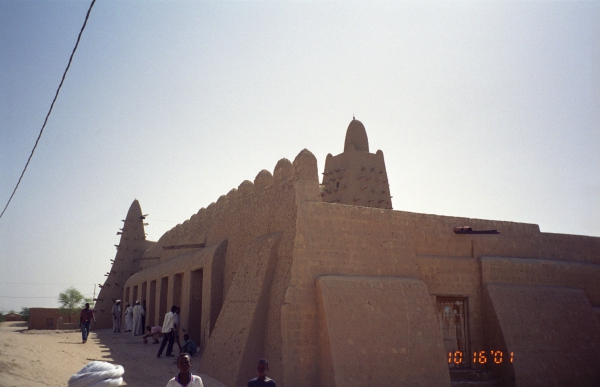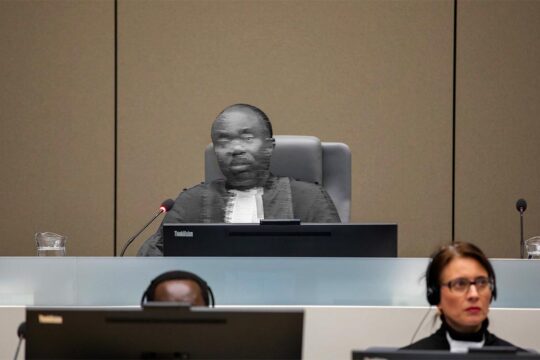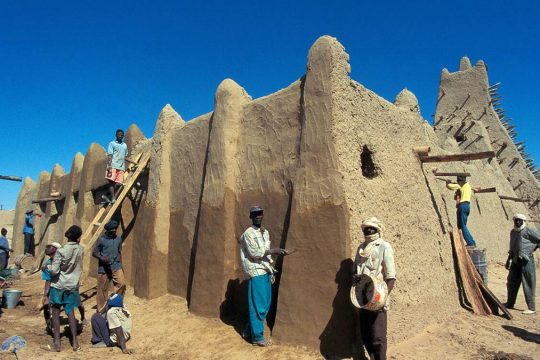The week in transitional justice was marked by the International Criminal Court’s decision on reparations to be paid following the 2012 destruction of mausoleums in Timbuktu, Mali.
The sum awarded ( 2.7 million Euros) is symbolic and the convict Ahmed Al Mahdi is indigent. But the International Criminal Court (ICC) intends to stress through this decision how serious is destruction of cultural and religious monuments, for victims and for the whole international community.
During his trial a year ago, Al Mahdi was found guilty of supervising attacks on nine mausoleums in the “city of 333 saints” during the occupation of northern Mali by Jihadists, as well as on the main gate of the Sidi Yahia mosque, which according to legend would not be opened until the end of the world. He was sentenced last September to nine years in prison. Judges delivering the reparations order said the destruction of these sites “destroys part of humanity’s shared memory and collective consciousness, and renders humanity unable to transmit its values and knowledge to future generations.”
These mausoleums, which the inhabitants believe protect the town, have now been reconstructed by UNESCO. But according to victims’ lawyer Mayombo Kassongo, “the spirits never returned to the mausoleums after their destruction, and so now the miracle no longer works.”
Another criticism levelled at the Court is that it is making (too) much of cultural heritage whilst Jihadist war crimes against human beings have not been brought to trial and remain unpunished. Mali, which is still in a difficult and fragile transition, is trying to hold trials for these crimes. Thus the trial has opened in Bamako of Aliou Mahamar Touré, former commissioner of the Islamic police of Gao, but victims’ associations say transitional justice in Mali is too slow and too limited.
Libya and Tunisia
In another decision this week, the ICC issued an arrest warrant for Mahmoud al Werfalli, an ally of Libyan strongman Khalifa Haftar, for murders as war crimes committed in Benghazi region, northeast Libya, in 2016 and 2017. Libya is a priority for ICC Prosecutor Fatou Bensouda, who told the UN last November she would step up procedures against suspects involved in that country’s crisis, including one of Gaddafi’s sons, Saïf Al Islam. But such action depends on cooperation from the many factions that hold power in Libya, which see the Court in terms of their own political interests. And it seems unlikely that Bensouda will open investigations into crimes against migrants as she had mooted.
Also this week, JusticeInfo looked at the recent law passed by Tunisia’s parliament to fight violence against women. This law, unique in the Arab world, is the culmination of a nearly 20-year battle by Tunisian feminists. But their fight is not over: Tunisian women’s inheritance rights are still only half those of men. In his August 13 speech for Women’s Day in Tunisia, President Béji Caied Essebsi launched a debate on equal inheritance rights for men and women in the country.






